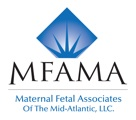What you need to know about Coronavirus:
In the past few months, there has been a rapid spread of a virus known as COVID – 19 or Coronavirus. This virus has rapidly spread and has resulted in a worldwide pandemic. Individuals most at risk are the elderly, immunocompromised, and those with multiple pre-existing conditions such as diabetes and hypertension. “Currently there is no evidence that pregnant women are more susceptible, but they are more prone to develop severe pneumonia if infection occurs (Yang et al, Opinion, Ultrasound Obstet Gynecol 2020 ).“
Symptoms:
. Fever (temperature > 100.4), cough, generally just not feeling well, more tired than usual, muscle aches, sore throat, and shortness of breath.
. Please call your OB provider If you feel you may have any of the symptoms.
. It is important to isolate yourself from others until you get instruction from your doctor.
Precautions:
You can take several steps to protect yourself.
. Use good judgement – wash your hands, sanitize, cover your cough, maintain your distance from others, isolate yourself at the first sign of symptoms until you speak with a doctor.
What we know so far:
—(Yang et al, Opinion, Ultrasound Obstet Gynecol 2020) – ISUOG – International society of Obstetrics and Gynecology.
“Currently, there is no evidence that pregnant women are more susceptible to COVID-19 infection and that those with COVID-19 infection are more prone to developing severe pneumonia.”
“-currently there are no data on fetal and perinatal complications, such as miscarriage, congenital anomalies, fetal growth restriction and spontaneous preterm birth, when COVID-19 infection is acquired during the first or early second trimester of pregnancy.”
“There is also no evidence of vertical mother-to-baby transmission of COVID-19 infection when the maternal infection manifests in the third trimester.”
“Mode of delivery should be individualized based on obstetrical indications.”
“it appears that there is no risk of vertical transmission via breastfeeding.” – COVID-19 is caused by close contact – newborns are best separated from their infected mothers for 14 days, however mothers should continue to express breast milk until they are clear of infection.
—(Yang et al, Opinion, Ultrasound Obstet Gynecol 2020) – ISUOG – International society of Obstetrics and Gynecology.
MFAMA:
. We will be implementing a series of steps to try to limit exposures in our offices. You will notice that we will be limiting the number of patients in our waiting room, we also request that patients not take any support person back with them during the exam. Please do not bring any children to the office.
. MFAMA doctors are continuing to follow the situation closely and are keeping up to date on all the medical information. MFAMA will continue to monitor you and your baby closely.
